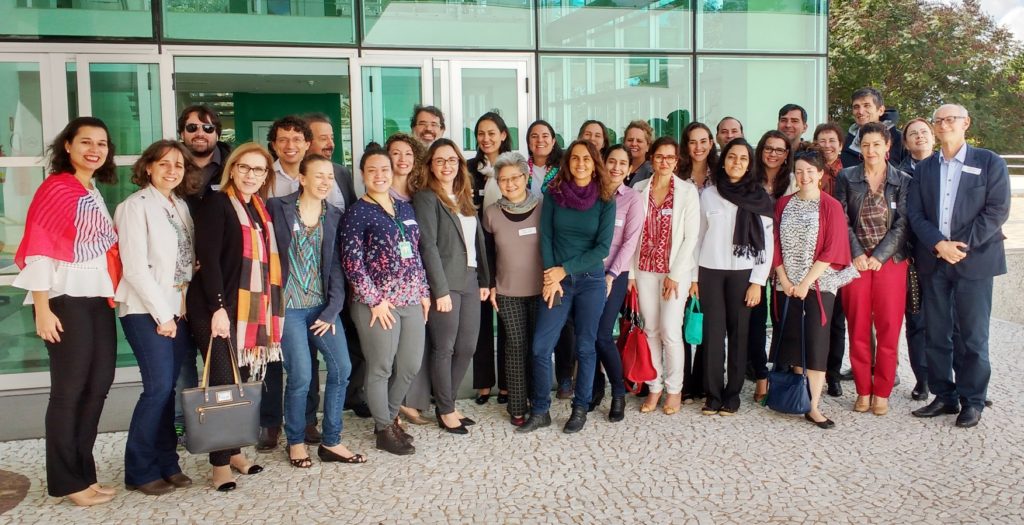BIREME participated in GRADE-CERQual workshop: an introduction to reliability assessment of the findings of qualitative evidence syntheses, organized by Fiocruz Brasilia, within the Project “Support to the improvement of SUS technology management through the platform of translation, exchange, and social appropriation of knowledge”, developed in partnership with the Departamento de Gestão e Incorporação de Tecnologias em Saúde do Ministério da Saúde of Brazil (DGITS/SCTIE/MS).
The workshop took place on June 28, 2017, with the goal of presenting GRADE-CERQual approach and to discuss its applicability for the development of knowledge translation platforms and products in Brazil. Dr Megan Wainwright, member of the coordination team of GRADE-CERQual Working Group and PhD researcher at the School of Public Health and Family Medicine, University of Cape Town, South Africa, was the facilitator. In addition to introducing the method, a series of group exercises was also conducted in order to discuss the establishment of collaboration between members, mainly in the networks EVIPNet (Evidence-Informed Policy Network) and REBRATS (Brazilian Network for the Assessment of Health Technologies).

BIREME has been working on the theme of evidence within the context of the VHL, as well as in some specific platforms, such as CARPHA and EVIPNET Brazil, and promoting self-learning courses on this theme. This opportunity of expanding knowledge with this methodology will be used in the projects and activities supporting the use of evidence in decision-making in health.
Verônica Abdala, Manager of Information Services and Production of Sources of Information at BIREME, stated “the systematic use of scientific evidence to inform social health policies has become increasingly more common among governments, international organizations, and other health organizations. Conversely, decision-makers need reliable information about the feasibility and acceptability of interventions to better understand the factors that may influence their implementation, and know how reliable are the findings of systematic reviews of research, including qualitative research.” In that sense, GRADE (Grading of Recommendations Assessment, Development, and Evaluation) and GRADE CERQual offer a transparent method to assess the degree of reliability of findings from research reviews.
According to Jorge Barreto, Fiocruz researcher and coordinator of the activity, “GRADE-Cerqual CERQual is an innovative approach that adds methodological value to make the use of knowledge in Evidence-Informed Policies more systematic and transparent, simultaneously valuing the results of qualitative scientific research, essential for identifying and understanding context and subjective factors of policy implementation processes”.
For further information on GRADE-CERQual, access http://www.cerqual.org/